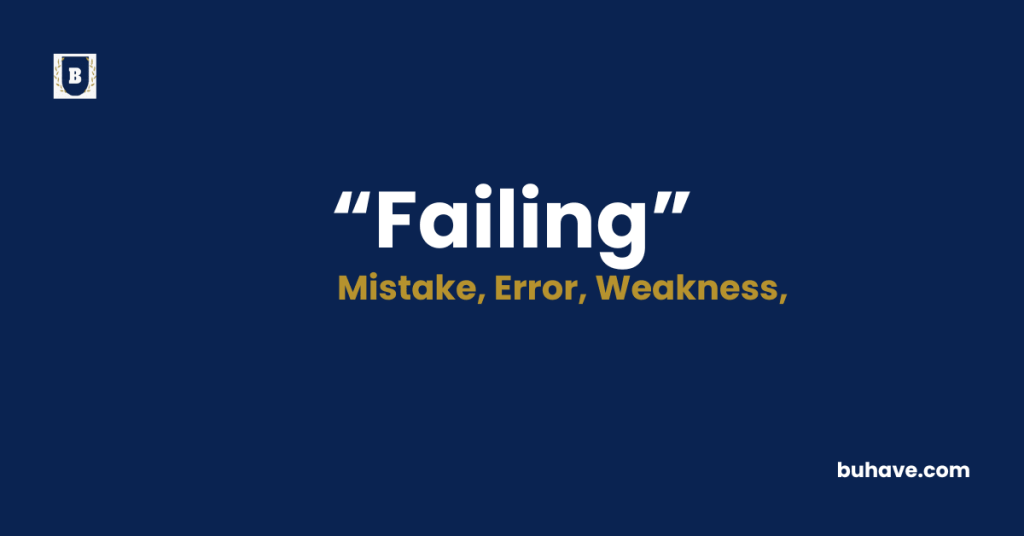The word ‘Failing’ (Adjective) refers to a weakness, shortcoming, or the act of not succeeding in something. It can describe a lack of success or a personal flaw. In this guide, you’ll discover the full meaning, definition, examples, etymology, synonyms, antonyms, and real-world usage of the word ‘Failing’.
Failing Explained in Depth
A complete and detailed guide to the word ‘Failing’ including meaning, definition, examples, etymology, synonyms, and antonyms.
Meanings of Failing
Failing as a noun means a fault or weakness in someone’s character or ability. As an adjective or verb form, it refers to not achieving success in a task or goal. It captures the idea of falling short or being unable to meet expectations or requirements.
Definition
Failing is defined as a deficiency or shortcoming in a person or effort. It also refers to the experience or state of not achieving a desired result, especially in academic, personal, or professional contexts.
Etymology
The word “failing” comes from the verb “fail,” which originates from the Old French faillir, meaning “to be lacking or to fall short,” which itself is derived from Latin fallere, meaning “to deceive or disappoint.”
Example Sentences
- One of his biggest failings was his inability to listen to others.
- The company’s failing strategy led to massive losses.
- Despite her academic failings, she worked hard to improve her grades.
- We all have personal failings that we must acknowledge and address.
Failing Synonyms
- Weakness
- Shortcoming
- Deficiency
- Flaw
- Inadequacy
- Defect
- Setback
- Fault
- Error
- Inability
Failing Antonyms
- Strength
- Success
- Ability
- Achievement
- Accomplishment
- Excellence
- Virtue
- Proficiency
- Capability
- Talent
FAQs about Failing
Here are some frequently asked questions (FAQs) about the word “Failing”
1. Is “failing” always negative?
Mostly yes, but recognizing failings can lead to personal growth and improvement, making it a necessary part of learning.
2. What is the difference between “failure” and “failing”?
“Failure” refers to the event or act of not succeeding, while “failing” can refer to an ongoing condition or a personal flaw.
3. Can failings be improved?
Yes. With awareness, effort, and support, personal and professional failings can often be addressed and improved.
4. Is “failing” used in formal contexts?
Yes, it’s commonly used in both formal and informal settings to discuss performance, character, or abilities.
5. How do I use “failing” in a sentence?
Example: “His greatest failing was a lack of patience.”

















